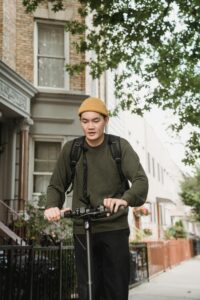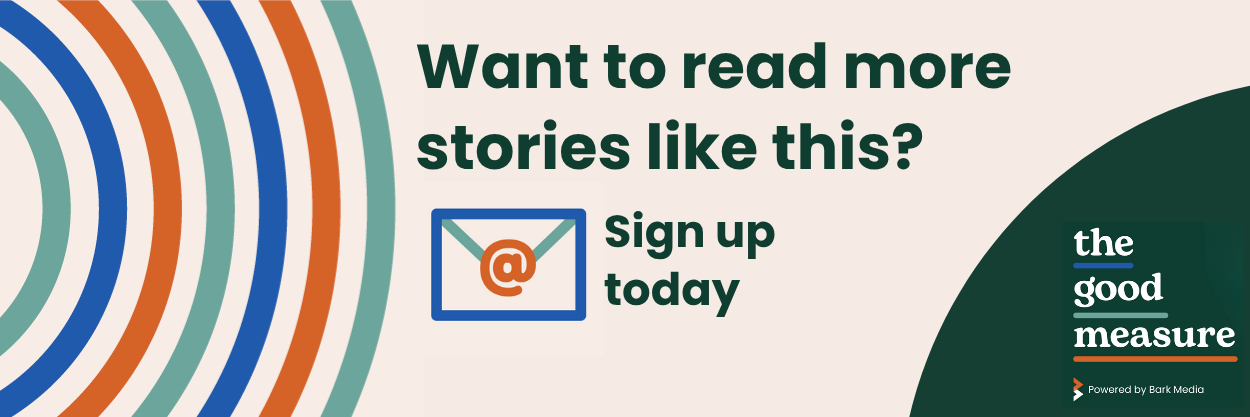As a content marketing agency working exclusively with impact business, Bark Media gets a behind-the-scenes and holistic view of the work toward systems change across sectors such as regenerative agriculture, climate action, and democracy reform. One area that promises the most potential for transformative change lies in the shift toward a regenerative economy. If we seek a more equitable, just, and sustainable world — we’ve got to put our literal money where our mouth is.
Finance is a critical lever to influence economic outcomes that advance sustainability, equity and justice. The finance sector has a unique position in helping to support the transition from an economy based in the exploitation of people and the planet to an economy based in restoration and justice. Plus, access to capital is a fundamental driver of economic prosperity — one that has historically been purposely withheld from women and People of Color. Today we continue to face significant disparities in access to capital for underrepresented groups.
At the recent Champions Retreat for the U.S. and Canadian Certified B Corporation community, we met up with a few of the innovators working across the financial sector to drive the shift toward a regenerative economy. Through apps, technology, education, impact funds, banking structures, and more, these impact leaders are empowering us to make our money work toward the world we want. In this series, we highlight our conversations with these leaders.
SoLo Funds: Building Financial Power in Underserved Communities
SoLo Funds is a community-centric peer-to-peer lending platform that enables people underserved by mainstream financial institutions to lend and borrow money without exploitative fees or penalties. With nearly 2 million registered users, SoLo is dedicated to supporting financial autonomy and empowering its community members to step up for one another, earn income, and build their credit history. Launched in 2018, SoLo is the only Black-led financial services B Corp in the U.S. and Canada.

Anyone can join the SoLo community by sharing some basic information and going through a verification process. Borrowers can make requests of up to $575 each, avoiding payday loans or high-interest credit cards and sidestepping any potential complexities of borrowing from friends and family. Borrower requests include the amount needed, what it’s for, when it will be repaid, and the tip amount being offered (although a tip is not required).
Through SoLo, lenders can make a financial impact by lending to community members and earn a return on their investment through small-dollar loans. Lenders peruse requests, see borrowers’ member scores and repayment histories, and select individuals to lend to, earning income through tips. Although SoLo’s default rate is low, SoLo Lender Protection covers missed payments for added security.
Bark spoke with Chief Operating Officer Lauren Sydney Smith about the SoLo program and how it serves its members through an innovative, community-driven approach.
Why did co-founders Rodney Williams and Travis Holoway launch SoLo Funds?
Lauren Sydney Smith: Financial institutions are exploiting vulnerable and underserved communities and putting people in worse debt situations than they were in before. When people are in dire financial need, they have scarce and often unattractive choices: high-cost options like subprime credit cards and payday loans; help from family and friends; or alternatives like selling possessions or using pawn shops. Traditional finance is not helping to ameliorate these situations. SoLo is trying to bridge that gap by providing a more empowering alternative that invests money back into these communities.
Our product has two goals: One, it’s giving people access to capital when they need it. Two, it’s giving people who have capital access to grow it. Our hope is that through using the app and gaining financial literacy, our borrowers graduate to become lenders and get to a position where they can help out fellow members of the community. In fact, about 30% of lenders on the platform have been borrowers.

Who are typical SoLo borrowers?
LSS: 82% of our members are from underserved communities, meaning they lack access to resources and quality services when they need help the most. We have a diverse member base, but all with that common theme: 60% are women, and almost 60% are minorities. There is a misconception that people who are living paycheck-to-paycheck are low- and moderate-income individuals. But in a 2023 Cash Poor Report, we show that one in 10 cash-poor households have an annual income of $100,000. Income therefore isn’t a proxy for liquidity. The fact is that a majority of Americans are living paycheck to paycheck. A lot of people across all classes don’t have meaningful opportunities to access capital let alone to save or invest after paying their expenses or trying to accommodate unplanned expenses.
How do lenders benefit from SoLo?
LSS: Mainstream financial institutions don’t deem certain people worthy enough to offer them high-yield products. Our lenders can yield significant amounts annually, and that’s money that’s staying in the community. We want to shift financial power back to the community. We want to offer our members products and services typically reserved for wealthy consumers in a way that is equitable and fair, that not only gives access to capital when they need it but also an opportunity to grow the capital they have.
